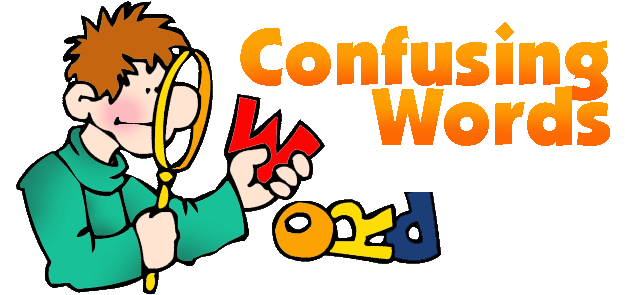NEWS
Top 25 Confusing words in English

Let’s face it- English can be a bit confusing language. It contains certain words that sounds alike but are different in writing which leads to spell-check issue every time with most of us. You will also find words that might share similar meanings but different usage. For e.g. ‘floor’ and ‘flour’ are two different words catering different meanings but similar pronunciation. Such words can be perplexing for everyday usage and even your electronic spell correct cannot detect the grammatical error you might make. Well, that’s the beauty of this language that can bring out the inquisition in you and might end up falling in love with this language. So, here is a list of top 25 confusing words that might help you in bewildering situations.
- Accept– to take willingly
Except– to exclude something
- Affect– to influence
Effect– to cause
- Bare– naked
Bear– is an animal or to carry
- Break– to smash
Brake– to stop
- Serial- happening in series
Cereal- a grass producing edible grain
- Coarse- rough
Course– a direction; a school syllabus; a part of meal
- Dessert- a waterless area; to abandon someone
Desert- a sweet dish
- Dual- having two parts
Duel- a fight or a contest between two people
- Foreword– an introduction to a book
Forward– onwards, ahead
- Hear– to listen with ears
Here– pointing towards a direction
- Hole– a gap or a space
Whole– complete, entire
- Lay– to set or put down flat
Lie– to remain in a certain place
- Loose– something’s not tight
Lose– to misplace or not able to find
- No– opposite of yes, not agreeing
Know– to understand and realize
- Poll– voting in election
Pole– a long slender piece of wood
- Principal– most important; head of the school
Principle– a fundamental rule or belief
- Piece– a part or segment of something
Peace- sense of calm
- Right– a direction; something which is correct
Write– to note down
- Sight– to suspect or see
Site– the place of incident or action
- Storey– floors of a building
Story– a narration of hypothetical or real situation
- Than– comparison
Then– denotes time (past)
- To– referring preposition
Too– in excess
Two– counting ‘two’
- Wander– to get lost in a place
Wonder– to think or ponder upon
- Were– a past verb
We’re– we are
- Your– referring noun
You’re– you are
